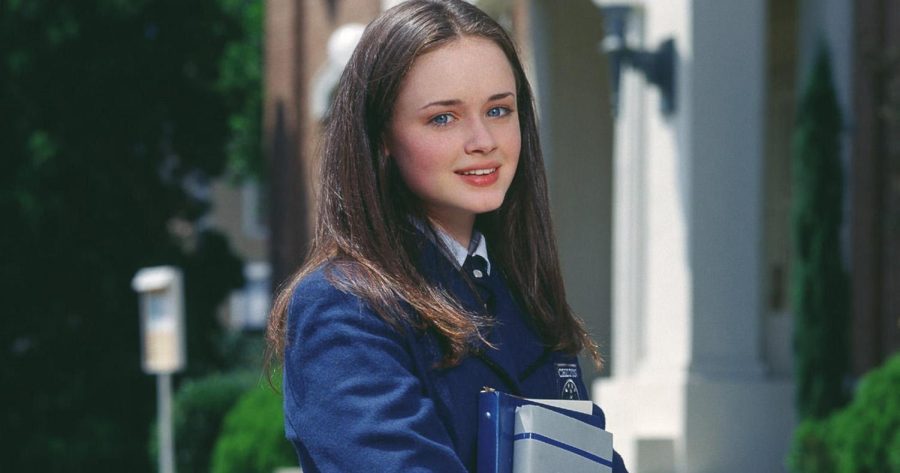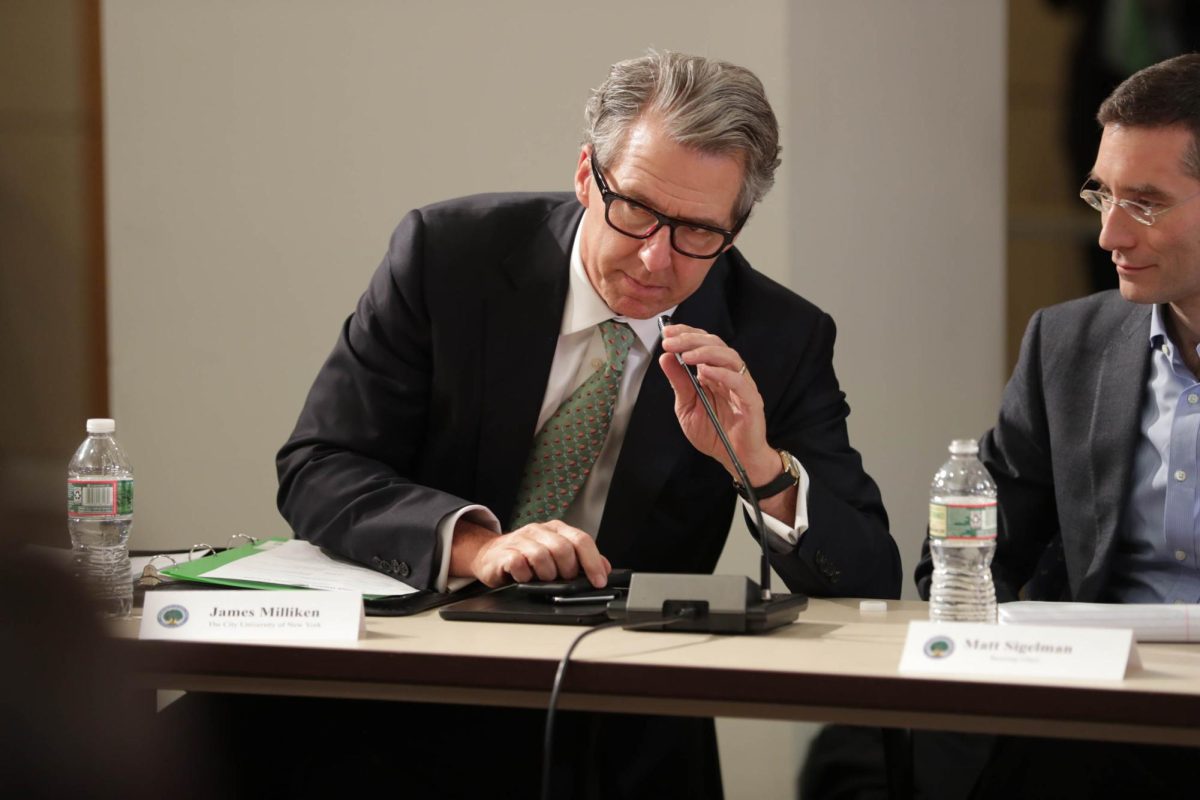Essay: A Character’s Fall from Grace and Those Who Choose to Emulate
Apr 16, 2023
In her debut article, contributing writer Yamile Peel discusses Rory Gilmore’s decline as a character and how supporters of Rory indicate a larger trend among society of people emulating characters with similar arcs.
Over the past five years, I have watched the show “Gilmore Girls” about six times, and always in the fall (that is the unspoken rule). As I have grown older, my perspective on the characters’ decisions and development has changed. “Gilmore Girls” is a show about a mother and daughter facing obstacles like love, education, and career choices while navigating life together. Lorelai Gilmore is the mother of Rory Gilmore, whom she had at 16 years old. Throughout the show, Lorelai is known to have issues with her parents and has a hard time settling down with her potential husbands. On the other hand, Rory wants to be closer to her maternal grandparents and can be in somewhat long-term relationships but also has the same tendency as her mother to avoid commitment.
From the countless times of watching this TV show, my opinion of Rory Gilmore has not changed: her character has the worst development possible. She starts off as an innocent high school girl who loves to read and can do no wrong. But, as the show progresses, boys begin to take an interest in her, and if she does end up showing interest back, she either cheats on them or treats them horribly. She can never be satisfied and always jumps from guy to guy; her own mother knows that it is wrong, and her disappointment culminates in her eventual confrontation with Rory in Season 4. In episode 22 of Season 4, Rory sleeps with Dean, her newly married ex-boyfriend. Lorelai catches Rory during the affair and lectures Rory about how she didn’t raise her to be the kind of girl to sleep with a married man.
From this point on, Rory becomes insufferable to watch. The once-innocent girl who believes she can do no wrong becomes increasingly problematic, while also receiving everything she wants. Not only does this apply to her love life, but she displays this attitude in her career and schooling as well. In Season 5, Rory begins interning for her boyfriend Logan’s father at the Stamford Eagle Gazette, a prestigious publication. Logan’s father is a big deal in the newspaper industry and told Rory that she doesn’t have “it” to succeed as a journalist. Upon hearing this criticism, Rory completely crumbles, gives up on her dream of being a journalist, and drops out of Yale. Every time things don’t go her way, she throws a fit by moving out, giving her mother the silent treatment, or just flat-out blaming her mother for the problems that Rory herself causes. In Season 1, Rory was the blueprint for any girl who was academically inclined, passionate about her hobbies, and had strong relationships in her life. But in Season 4 and onward, she becomes the embodiment of a pretentious, spoiled girl with a trust fund who cannot live life without male attention.
The downfall of Rory’s character has to be one of the most heartbreaking things to watch as a “Gilmore Girls” fan. In the end, Rory’s breakdown throughout the show saddens viewers who witness a once-admirable character turn into an unlikeable person. The shift in Rory’s actions from high school to Yale demonstrates that she may have felt like she wasn’t fitting in and had to be someone she wasn’t in order to be accepted. Imposter syndrome is extremely common in college students and could have affected Rory in ways that caused her to act in seemingly irrational ways. This feeling of pity that I sometimes get when watching Rory makes me reflect on how people are a product of their environment, meaning that Rory doesn’t always mean to make bad decisions but rather that she puts herself in situations that incite these bad decisions. This also demonstrates the theme of the importance of morality and accountability when dealing with things such as love and the hardships of life, which ultimately progresses the show’s message in an admittedly bittersweet way.
As I have watched Rory go through life, I have noticed that the way she reacts to life events is very flawed. When faced with hardships, she decides to give up, whether that be dropping out of school, ending relationships for no apparent reason, or pinning her own problems on her mother. When it comes to relationships, I have always known that cheating is not acceptable. Although I loved Rory in the beginning, her decisions made me resent her as I had once seen a part of myself in her from the earlier seasons. I wanted so much better for her, but she kept disappointing me with her choices. When she gave up on journalism and dropped out of Yale, it made me realize that giving up at any minor inconvenience is not how you achieve your goals.
Nothing in life should be easy, but everything did come easy for Rory. When times were tough, she gave up; that rejection should have made her want to try harder rather than bail out. Rory’s actions have shown me that hardships should inspire growth, not weakness. When everything you have comes easy, you don’t appreciate it when you finally succeed. Because opportunities came easy to her and she created her own problems, she didn’t have the growth that I had hoped for. As “Gilmore Girls” has once again circled around and regained popularity, what is considered morally acceptable has changed over time.
Although societal standards have changed, the plot and decisions of the characters of the show have not, causing the dismissal of Rory’s actions among new viewers of the show. Cheating isn’t an unknown concept in our society as infidelity is a tale as old as time. However, the idea of cheating and disloyalty has become normalized and common practice. Aside from a brief scolding, Rory never faces any real consequences when she has an affair with Dean, leading to the continuation of their relationship. Rory’s character has romanticized cheating, and because she is the main character, her actions are often dismissed by viewers. Viewers could even be influenced by her immoral actions as more social media outlets are talking about book lists, fashion, and study tips that emulate Rory’s lifestyle. With such influence comes viewers that not only want to model what she looks like but also how she acts, regardless of her questionable morals.
The issue goes the other direction too, as men also have characters in entertainment that are bad influences but are still admired. This shift from protagonist to antagonist is not uncommon; take “Breaking Bad” as an example. Its main character, Walter White, exhibits the same progression. Walter began as a character one might feel pity for because of his terminal illness, lack of respect, and discontentment in life, but as the show developed, he became narcissistic and egotistical, deviating from his original intentions of familial protection. Even though his character’s morals were compromised, fans still supported him through the end. And it’s not only Walter White, but also characters like Jordan Belfort (as portrayed by Leonardo DiCaprio), Patrick Bateman, and Tony Soprano, all of which have seen a rise in popularity in recent months. This continuing cycle of supporting characters we know have flaws that eventually lead to their downfall is something that will proceed to occur. These characters should serve as a reminder that we must be cautious of who we choose to watch and look up to because of the grander implication it can have with how society chooses to act. After all, we often emulate those we consider heroes.
Image courtesy of Wallflower Journal















Miranda Martinez • Apr 16, 2023 at 2:38 pm
Totally agree!!! Very well written, loved the essay!!!